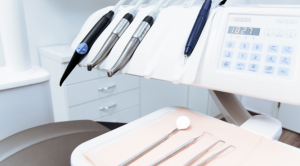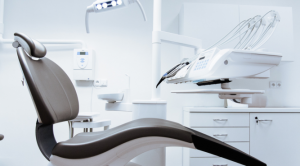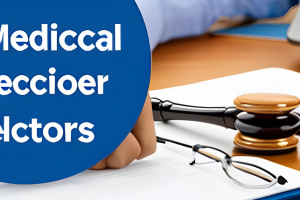Introduction
Dental Negligence in the UK-Dental negligence is a term used to describe cases where a dentist or dental practitioner has failed to provide the appropriate standard of care during a dental procedure. This can result in serious injuries, complications, or ongoing dental problems for the patient. In the UK, dental negligence is a growing concern and patients should be aware of their rights and options when seeking treatment. This article aims to explore what Dental Negligence in the UK is, how it can occur, and what patients can do if they have been affected.
What is Dental Negligence in the UK?
Dental negligence refers to any case where a dentist or dental practitioner fails to provide the appropriate standard of care during a dental procedure, which results in harm or injury to the patient. Dental Negligence in the UK is considered a type of medical negligence and is therefore subject to the same legal requirements and regulations as other medical procedures. Dental negligence can include a range of errors, such as failing to diagnose a dental condition, providing incorrect treatment, or causing damage during a procedure.
How Does Dental Negligence Occur?
Dental negligence can occur in many ways, and it can be caused by a range of factors. Some of the most common causes of dental negligence in the UK include: For more click here
- Misdiagnosis – Dentists may misdiagnose a dental condition or fail to recognize a serious issue, leading to further complications and problems.
- Inappropriate Treatment – Dentists may provide inappropriate treatment or use incorrect procedures, leading to further damage or injury.
- Failure to Obtain Consent – Patients must be informed of all risks associated with dental treatment, and failure to do so can result in Dental Negligence in the UK claims.
- Inadequate Aftercare – Dentists must provide adequate aftercare following dental procedures, and failure to do so can result in further complications or problems.
- Equipment Failure – Equipment failure can cause serious injury or harm to patients during dental procedures.
What Are Your Rights as a Dental Patient?
As a dental patient, you have the right to receive high-quality care from your dentist or dental practitioner. This includes being fully informed of any risks associated with your dental treatment, receiving appropriate treatment and care, and being provided with adequate aftercare. If you believe that you have received substandard care or have been the victim of Dental Negligence in the UK, you have the right to seek legal advice and pursue a claim for compensation.
What Should You Do if You Believe You Have Been Affected by Dental Negligence?
If you believe that you have been affected by dental negligence, there are several steps that you should take:
- Speak to your dentist – If you have concerns about your dental treatment, you should speak to your dentist or dental practitioner in the first instance. They may be able to resolve your concerns or provide you with further information.
- Seek legal advice – If you are not satisfied with the response from your dentist or dental practitioner, you should seek legal advice from a specialist Dental Negligence in the UK solicitor. They will be able to advise you on your rights and options for pursuing a claim.
- Gather evidence – It is important to gather as much evidence as possible to support your claim. This may include medical records, photographs, and witness statements.
- Start your claim – Once you have gathered the necessary evidence and sought legal advice, you can start your claim for compensation.

Steps to Know
Compensation for Dental Negligence
If you have been affected by dental negligence, you may be entitled to compensation. The amount of compensation you can claim will depend on a range of factors, including the severity of your injuries, the impact on your quality of life, and any financial losses you have incurred. A specialist dental negligence solicitor will be able to advise you on the potential compensation you may be entitled to.
Time Limits for Dental Negligence Claims
If you have been affected by dental negligence, it is important to act quickly as there are time limits for making a claim for Dental Negligence in the UK. In the UK, you generally have three years from the date of the negligence or the date you became aware of the negligence to make a claim. However, there are exceptions to this rule, and it is essential to seek legal advice as soon as possible. Know more about Dental negligence time limit.
Proving Dental Negligence
To prove Dental Negligence in the UK, you will need to show that your dentist or dental practitioner breached their duty of care and that this breach caused harm or injury to you. This can be a complex process, and it is essential to seek legal advice from a specialist dental negligence solicitor who can help gather evidence and build a strong case on your behalf.
Choosing a Specialist Dental Negligence Solicitor
If you are considering making a claim for dental negligence, it is important to choose a specialist dental negligence solicitor who has experience in handling these types of cases. A specialist solicitor will be able to provide you with the expertise and support you need to navigate the complex legal process and achieve a successful outcome.
Conclusion
Dental Negligence in the UK is a serious issue, and patients who have been affected by substandard care or treatment should seek legal advice from a specialist dental negligence solicitor. By understanding their rights and options, patients can take action to hold negligent dentists or dental practitioners accountable and achieve the compensation they deserve. Remember, if you have been affected by dental negligence, it is important to act quickly to protect your rights and interests. Check my blog
















